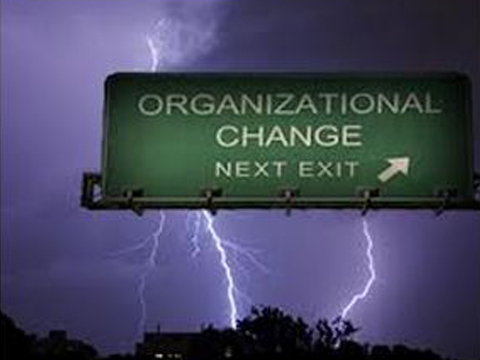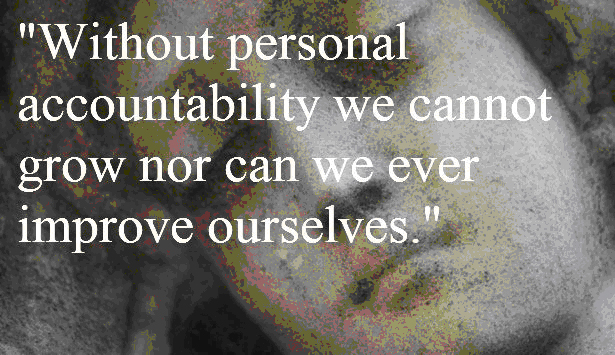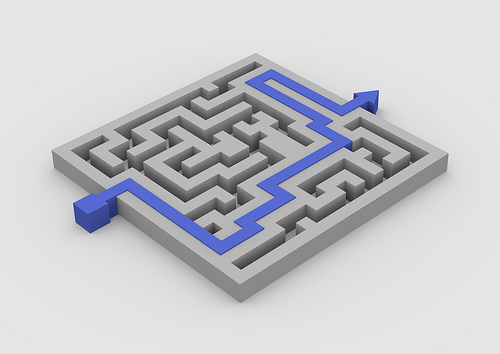Workshops
Below is a description of some of the workshops that are available - the workshops are usually around three hours long. The content can be customized for your needs (e.g., for inclusion in a retreat, or to incorporate the processes/procedures/culture of your organization).
Appreciative Inquiry

Appreciative inquiry (which is rooted in positive psychology) is a methodology for affirmative change. What kind of paradigm shift could you make if you focused on leveraging your department’s successes, rather than focusing on its failures; documenting excellence rather than problems? This workshop highlights how Appreciative Inquiry can be used as an energizing springboard for positive change. It is designed for the manager / team leader and learning objectives include:
Through discussion, activities and practice, participants will:
- Examine the foundations and assumptions of Appreciative Inquiry (AI)
- Explore the 4-D (discovery, dream, design and destiny) AI model
- Discover tools and approaches for practicing AI
- Consider applications for AI
- Conduct AI interviews
- Determine potential uses for AI in your department
- Develop an action plan
Change Management

Organizational change is accelerating rapidly due to major societal and technological shifts The rapid pace and the complexity of change will only continue to increase as we proceed through the 21st century. Will your employees react with resistance, resentment, fear and anxiety? How can you ensure, instead, that your employees have a positive experience as they are faced with inevitable change? Topics addressed include: the difference between change and transition, Bridges change model, resistance, managing transitions and resiliency.
Through discussion, activities and practice, participants will:
- Distinguish between “transition” and “change” in the workplace
- Examine reasons for resistance and consider how to handle it
- Identify the three phases of transition
- Develop strategies to manage endings and deal with loss
- Create processes to assist individuals through the neutral zone
- Determine tactics for enhancing resiliency
- Design an action plan to manage a current or up-coming change
Communication Fundamentals

Effective communication is an essential skill for anyone who interacts with other people. We communicate with others at work, even when we're not speaking! How would you rate your communications skills? Do you achieve the results you want when you are communicating? This workshop focuses on the components of effective communication, exploring some of the barriers to communicating in today’s workplace, and highlighting strategies for successful communication. Topics addressed include individual needs, non verbal communication, active listening, and effective questioning.
Through discussion, activities and practice, participants will:
- Comprehend the dynamics of communication
- Identify some barriers to effective communication
- Analyze their own blocks to communication
- Examine a current communications challenge
- Understand the impact of "I" versus "you" statements
- Demonstrate effective listening skills
- Create an action plan for personal communications skills development
Connecting with Others

Research demonstrates a strong link between inclusion and profitability, productivity, employee engagement and customer service. Does your department/organization offer inclusion or disconnection? How could you enhance the connectivity of your employees — with one another and with customers/clients? This workshop focuses on five major disconnects and their paired competencies. Topics covered include: the difference between diversity and inclusion, the business case for connecting with others and skill-building around the five competencies.
Through discussion, activities and practice, participants will:
- Evaluate current “connectivity” in their department/organization
- Analyze the effect of inclusion to the bottom line
- Examine the effects of the five major disconnects
- Develop and practice “connecting” competencies
- Create an action plan to enhance inclusion in their department
Creativity and Problem Solving

How could enhanced creative problem solving impact your overall effectiveness, both at work and at home? So often, we are in a “thinking rut” and find it difficult to break our traditional patterns so that we can be open and discover better solutions. This workshop focuses on unlocking and boosting the creativity which is within us, so that we will more easily be able to develop innovative ideas.
Through discussion, activities and practice, participants will:
- Identify characteristics of creative consciousness
- Determine how to embrace ambiguity
- Create a mind map
- Use the "six thinking hats" technique to solve a problem
- Design an action plan to enhance creative problem-solving
Customer Service

Customer service may be the only aspect of business differentiating you from your competitor. How do you stack up? This workshop explores the importance of a customer service orientation, determines what exceptional customer service looks like and examines specific techniques to create positive experiences for all your customers.
hrough discussion, activities and practice, participants will:
- Identify reasons why providing exceptional service is important to themselves, their department and the organization
- Analyze the customer’s basic needs
- Determine the specific behaviors that create positive customer interactions
- Examine the skills needed to handle upset customers
- Explore the ""HEAR" model (hear, empathize, apologize, resolve)
- Review and demonstrate effective communication techniques
- Create a "Service Action Plan"
Everything DiSC Workplace®

Effective interpersonal skills are a must in today’s workplace. How would you rate your understanding of yourself and others? How aware are you of the impact your behavioral style has on those around you? In this workshop, you will discover your DiSC style and learn how it affects workplace priorities and relationships. You will have a better understanding of how to use your strengths to build more effective relationships with other people. You will learn how to read other people and be more sensitive to how their style impacts you.
Through discussion, activities and practice, participants will:
- Identify their style and explore the priorities that drive them during their workday
- Discover the similarities and differences among the DiSC styles
- Examine their reactions to the different DiSC styles
- Determine the needs of the other styles
- Formulate strategies to optimize team building
- Practice using the DiSC to build more effective relationships at work
- Develop an action plan for building more effective relationships
Emotional Intelligence

In many jobs, interpersonal skills are just as important as technical skills, and they become more important as you climb the corporate ladder. How would you rate your people skills? This workshop explores key concepts in emotional intelligence (EQ) and the business case for EQ. You will assess your own EQ skills and examine techniques for raising self and social awareness and managing yourself and social relationships.
Through discussion, activities and practice, participants will:
- Understand what emotional intelligence (EQ) is
- Analyze the business case for EQ
- Self-assess EQ skills
- Explore the four main elements of EQ
- Examine strategies to raise EQ
- Create an action plan to enhance EQ
Employee Engagement

Research demonstrates that employee engagement has a major impact on performance, retention and profitability. It is the manager that influences employee engagement, both directly and indirectly. Are your employees engaged? How can you enhance the engagement of your direct reports? Topics addressed include: the economic impact of disengaged employees, the current state of workforce engagement and the ten drivers that increase engagement.
Through discussion, activities and practice, participants will:
- Examine the impact of engaged vs. disengaged employees
- Determine how engaged they are in their current position
- Analyze the ten engagement drivers
- Assess their effectiveness in implementing the drivers
- Create an action plan to enhance the engagement of their employees
Handling Change

In our current global environment, change is occurring at an accelerated rate. How do you handle all of the changes coming your way, both personally and professionally? This workshop increases your ability to manage the transitions caused by change, minimizing disruption and distress. We will discuss a three-phase process, which individuals experience when dealing with change. You will learn creative techniques to manage each phase successfully, examining the benefits of these phases.
Through discussion, activities and practice, participants will:
- Examine the changes in their current environment
- Understand the difference between change and transition
- Analyze how to manage endings more effectively
- Identify strategies to increase resilience
- Determine how to optimize the "chaotic" phase of the process
- Formulate techniques to enhance new beginnings
- Develop an action plan to manage a current change more successfully
Interviewing Skills

The selection of new employees is of vital significance to any organization or team. How can you maximize the effectiveness of the selection process? This workshop explores how to develop behavior-based interview questions; why it is important to have an interview based on thorough knowledge of the job; and considers various interviewing skills.
Through discussion, activities and practice, participants will:
- Examine the costs of employee turnover
- Recognize the importance of developing an interview plan based on thorough knowledge of the job
- Design behavioral interviewing questions
- Discuss interviewing "do's" and "don'ts"
- Conduct an interview using behavioral interviewing techniques
- Consider strategies for optimal candidate evaluation
- Develop an action plan to enhance a future selection process
Life Transitions

This is a three-part series designed for people who are facing a major life transition. If you are considering a career change, planning for retirement or facing another critical juncture, this workshop will provide you with the tools and resources to help you transition successfully. You will emerge better equipped to make key life decisions and achieve your personal and professional goals.
Navigating Change — Module 1
You will gain an understanding of the stages of change and how to successfully manage change and transition in your life.
Through discussion, activities and practice, participants will:
- Assess personal assets and liabilities pertaining to change
- Explore the three stages of change/transition
- Review roles, relationships and routines
- Examine strategies to enhance resiliency
Finding Your Purpose — (Modules 2 & 3)
Through a series of exercises and assessments, you will be guided on a journey to discover your personal mission/life purpose, strengths and interests, and plan for your desired lifestyle and future activities.
Module 2:
You will identify your values, passions and strengths, and write a draft of your personal mission statement.
Through discussion, activities and practice, participants will:
- Identify their values
- Determine their strengths
- Clarify their passions
- Create a personal profile
- Draft a mission statement
Module 3:
You will reflect on eight key life and work dimensions, review your current status in relation to those dimensions and develop a transition plan with goals and action steps to arrive at your preferred future.
Through discussion, activities and practice, participants will:
- Finalize their mission statement
- Complete a review of life and work dimensions
- Create a detailed transition plan

Living a Fulfilling Life
This 5-module workshop is for those who feel that life is good, but perhaps there’s something more that will make life GREAT! How can you flourish and live a stronger, more positive and fulfilling life?
This workshop is based on Martin Seligman’s PERMA model of well-being (Positive emotion, engagement, relationships, meaning and accomplishment). Seligman is the “father” of positive psychology which is founded on the premise that everyone wants to live a meaningful and fulfilling life; they want to cultivate their strengths and enhance their well-being in all areas of life, especially love, play and work.
Each module will focus on one of the PERMA elements, examining what you are currently doing well in that area, and how you can maximize it to the fullest. At the end of the series, participants will have a toolbox of strategies they can use and apply in all areas of their lives.
Module 1: Positive Emotion
Positive emotions are an essential part of our well-being and help us flourish - physically, intellectually and psychologically - increasing creativity, resilience, intuition and optimism.
Participants examine current research, and practice the skills and activities that increase our experience of positive emotions.
Module 2: Engagement
We thrive, feel satisfied and enjoy being “in the flow” when we’re fully engaged in our tasks (whether they be at work or at home) and when we’re using our strengths.
Participants identify their top strengths and talents and target strategies to increase their “flow” experiences.
Module 3: Relationships
We enhance our well-being by building strong networks of relationships with the people around us – family, friends, colleagues and anyone else in our lives.
Participants determine the positivity ratio of their most important relationships and select tactics to increase this ratio.
Module 4: Meaning
We are at our best when we feel our life and work has direction, when we serve a cause that is greater than ourselves (family, a religious faith, community work, a professional or a creative goal).
Participants consider their values, what gives them a sense of meaning and purpose, and explore their current relationship to work.
Module 5: Accomplishment
We like to look back on our lives with a sense of competence, mastery and accomplishment; past achievements make us feel more confident and optimistic about our future goals.
Participants create an accomplishment inventory and create an action plan to progress towards their vision for their flourishing life.
Managing Conflict

Conflict is "normal" but at its extreme, it can create a toxic situation in the workplace, negatively affecting morale and productivity. How can you manage conflict and ensure the result is a win-win for everyone? This workshop explores various conflict management styles and their most appropriate uses; possible sources of conflict and various methods for diagnosis; and becoming aware of your own conflict style, while recognizing the conflict styles of others.
Through discussion, activities and practice, participants will:
- Discuss possible sources of conflict and various methods for diagnosis
- Identify individual behavior in conflict situations
- Analyze a conflict management model
- Explore various conflict management styles and the most appropriate use for each
- Discuss and apply strategies for managing on-the-job conflicts
- Create a plan to strategically handle a current conflict
Motivation

What motivates you? How engaged are you at work? If you were able to tap into your motivational patterns, how could your life change? This workshop focuses on the identification of the patterns that shape your life, so you can understand your innate motivation and leverage this understanding to create a more joyful future. Topics addressed include: what is motivation, your motivational patterns, your strengths, your life goals, planning for your preferred future.
Through discussion, activities and practice, participants will:
- Understand the concept of motivation
- Analyze their motivational patterns
- Identify their strengths, and ascertain how to use them more
- Examine the impact of job dissatisfaction
- Analyze how to manage their limitations
- Determine future goals
- Create an action plan for their preferred, motivated future

Personal Accountability – Does it Really Create Success?
Yes, personal accountability does generate success! This workshop is based on Linda Galindo’s book, “The 85% Solution” and it focuses on the essential skills necessary for developing a personal accountability mindset. You will learn how to become more responsible for the results of your choices, actions and behaviors by understanding the difference between responsibility and accountability. This workshop is designed for the individual contributor.
Through discussion, activities and practice, participants will:
- Evaluate their accountability mindset
- Analyze the “Accountability Cycle”
- Examine barriers to accountability
- Discover ways to “self-empower” at work
- Make clear agreements with others
- Develop an action plan to enhance on-the-job accountability
Positive Psychology: New Strategies for Success
Positive psychology is the “scientific study of optimal functioning.” Research demonstrates that focusing on the positive results in important gains in all spheres of life - professional, educational and personal. This workshop focuses on how and why positive psychology works.
Through discussion, activities and practice, participants will:
- Explore the concept of positive psychology
- Determine the benefits of positivity in the workplace
- Examine how hope and optimism are linked to desirable outcomes in the workplace
- Select appropriate positive psychology strategies
- Create an action plan to role-model positivity.
Reinventing Your Career at 40+

- What would you like to do in the second half of your career journey?
- How do you successfully navigate the job search in midlife?
- Is 50 the new 40?
The world we live in has changed dramatically. If you want to be part of the conversation, your social media presence is critical. Not only do professionals have resumes, but they also have LinkedIn profiles. While the economy is showing signs of improvement, many people are not satisfied with their career options and wish they were doing something different.
Whether you are transitioning from your primary career, considering a career change, or facing another critical juncture (such as retirement), this workshop will introduce you to tools and resources to help you transition successfully to the next phase of life.
Through this workshop you will explore career options and learn new strategies to reinvent your career and embark on your NEXT journey.
This program will cover:
- Discovering your values, strengths and passions
- Career reframing for 40 plus – exploring new roles and opportunities
- Marketing yourself through branding and networking
- Social media and LinkedIn – what you need to know
- Updating your resume
- Developing your career game plan and effective job search
Team Building for Leaders

Much of today’s work outcomes are produced through teams. How effective are your teams? This workshop explores various aspects of effective team building - clarifying team roles, goals and responsibilities; personal leadership styles; the stages of team development; building rapport, trust, and accountability; strategies for managing conflict and navigating change; and coaching and motivational techniques to sustain team performance and engagement.
Through discussion, activities and practice, participants will:
- Examine the goals and priorities of a team
- Consider the roles and responsibilities of team members
- Discuss the stages of team development
- Determine how to structure teams effectively and manage the team process
- Formulate strategies for effective team problem-solving and decision-making
- Learn techniques to regulate team conflict
- Create an action plan to enhance current team performance
The Art of Public Speaking

According to the book of lists, public speaking is the number one fear cited by individuals. If you are among the many who experience panic, nervousness, or fear at the thought of speaking to an audience, this class is for you. This three-session course will explore the origin of your fears, and introduce a process to clear away those fears and set you free to become a confident speaker. In addition, you will also learn techniques for planning, organizing, and delivering results-oriented messages. You will be asked to give several short presentations throughout the class and receive feedback from your instructor and peers.
Through discussion, activities and practice, participants will:
- Discuss the characteristics of effective and ineffective speakers
- Examine “stage fright” and its cure
- Learn an anxiety-reducing clearing process
- Explore the components of a dynamic message
- Identify and demonstrate the elements of successful public speaking
- Explore techniques for handling participants
- Create an effective presentation
- Give a presentation
- Offer feedback to the other participants
Time Management

Most of us feel that 24 hours is not enough time to get our “to-do” list completed! We can’t increase the length of our day, but we can become more proficient in how we spend the time we have. Are you using your time wisely, being productive rather than being busy? This workshop explores various aspects of proficient time management including using activity logs; delegating and avoiding distractions; using planning time effectively; and prioritizing “To Do” lists.
Through discussion, activities and practice, participants will:
- Identify their own time wasters and adopt techniques to eliminate them
- Examine a time management matrix
- Consider their personal effectiveness
- Explore an effective delegation process
- Discuss procrastination and strategies to overcome it
- Develop an action plan for enhanced personal productivity
We can assist you with all of your performance improvement needs. Please email us at pahilliard@ca.rr.com with questions about our services or programs.







